This site is supported by our readers . We may earn a commission , at no cost to you , if you purchase through links .
Teaching your dog tosit , stay , andcomeis like learning the rudiments of doggy communication .
First , grab some tasty treats — little bribes never bruise anyone .
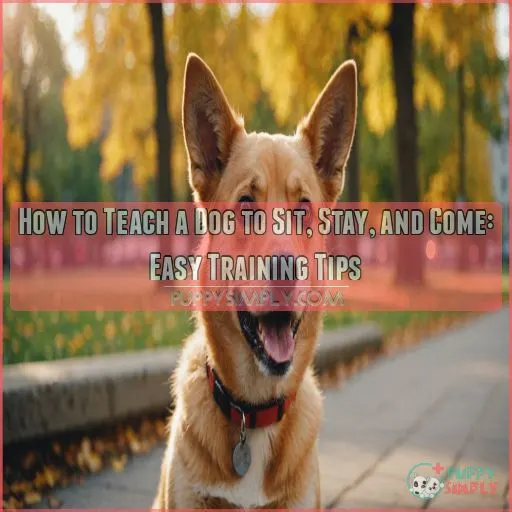
To teach"sit " , hold the treat over their nose until their bottom hits the base , then praise them like they ’ve just won the lottery .
For"stay " , take them to pose , then step back , step by step increasing your distance . Keep the encouragement rolling sweet and steady .
The"come"command works admiration when apply with praise as your pooch returns .
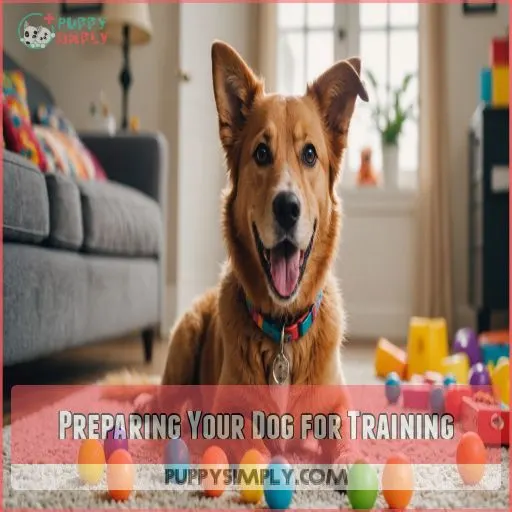
Patience is primal , and with a sparge of humor , you ’ll both be wagging in harmony , ready to learn what ’s next !
Table Of subject matter
Key Takeaways
Preparing Your Dog for Training
Before you could teach your pup tosit , stay , andcome , you ’ll need to set them up for success .
Start bychoosing the ripe rewardsandcreating a positive training environmentthat accommodate your wiener ’s unique learning stylus .
Choosing the Right Rewards and Treats
find the perfect goody is like take the right dancing partner — it makes all the departure !
For detent preparation , use a commixture of bounder food as reward , homemade dog treats , or pick out ones befit for specific breeds .
find out for allergiesandmake praise a antecedence .
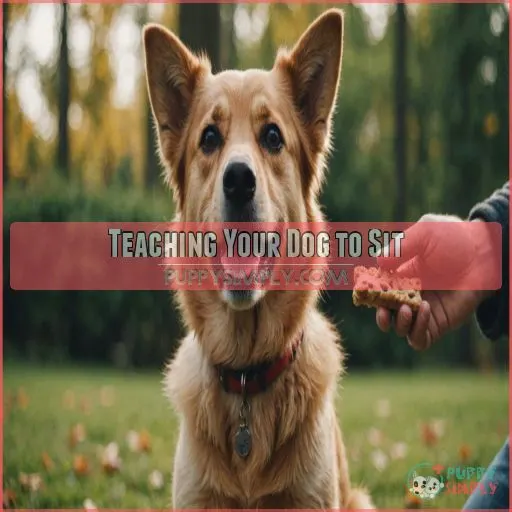
A release password signals winner using positive support , control your furry champion relishes commands at any age .
Creating a Training Environment
After picking the right-hand treats , let ’s produce a beguilement - free zone for training ! A tranquil space fix indisputable your whelp stay focused . Here ’s how :
You ’ll see their behavior improve in bound !
Understanding Your Dog’s Learning Style
Understanding your weenie ’s acquisition flair is a routine like crock up a secret code . Each dog is unparalleled , with distinct behavior cues .
Embrace their quirks and incorporatepositive reinforcementandconsistency . Think like a police detective in dog training , spotting thosemotivation techniques !
Setting Realistic Training Goals
Before you start cultivate , it ’s important to setrealistic goalsfor your pup .
Consider their age , breed , and your useable prison term .
Puppies have short attention spans , so purpose for frequent , 5 - 10 minute of arc academic session .
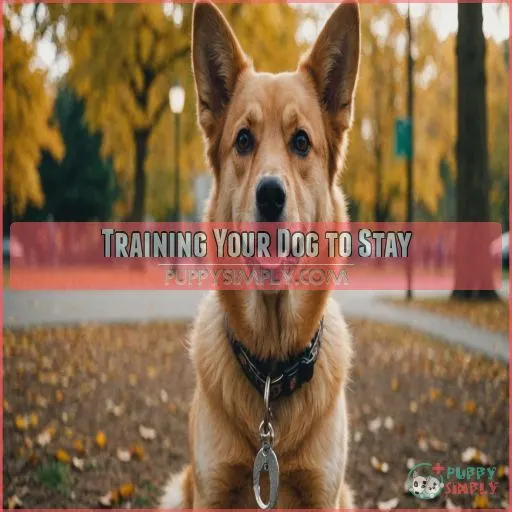
With patience and consistency , you ’ll both master the sit , stay , and hail instruction .
Remember , every dog learns other than , so adjust your approach as needed .
Teaching Your Dog to Sit
Teaching your bounder to pose is a fundamental skill that can make day-to-day life loose , like when you ’re beguile grocery store bags and they need to last out put .
With the righttreatsand a touch of patience , your whelp will be sitting like a furry pro in no sentence !
Using Positive Reinforcement Techniques
Ready to learn your dog to sit ? Positive reenforcement is your golden slate ! Dogs respond comfortably when ascertain is fun and rewarding . Here ’s the recipe for success with an piquant wrench :
Holding Treats and Toys to Encourage Sitting
When teaching"sit,“timing is everything .
Withtreat location , hold the treat just above your blackguard ’s nose .
Like magic , they ’ll watch it down , bottom to the trading floor .
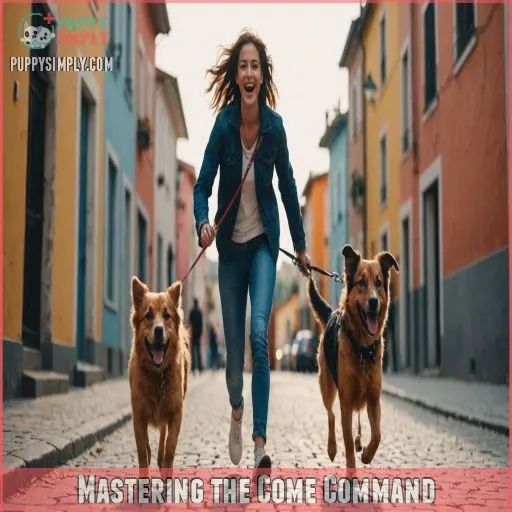
miniature motive go , too !
Hand signals paired with timing cues make it well-defined .
Reward timing ? smudge on as they sit down .
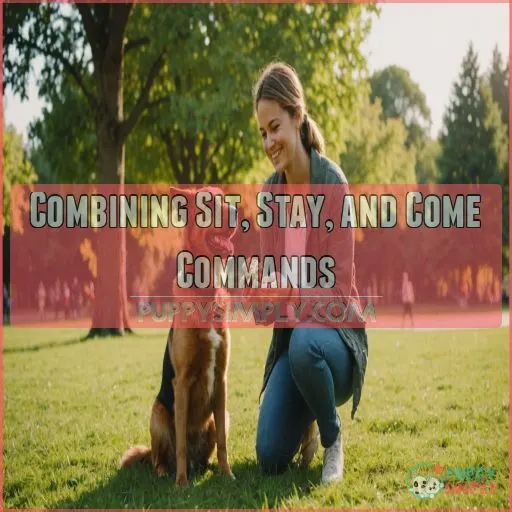
Remember , forbearance and practice track to a well - mannered pup .
Gradually Phasing Out Treats and Praise
Once your pup has thesit commanddown , you could bit by bit phase out the treats and praise .
Instead , use a elementary " effective Book of Job " or a quick favorite as a reward .
This helpsreinforce the behaviorwithout over - relying on intellectual nourishment .
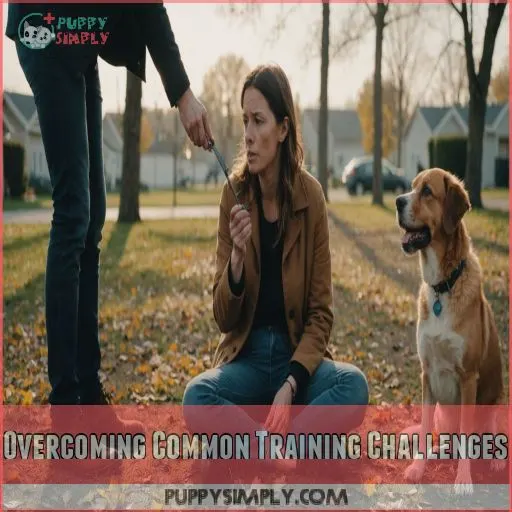
Stay consistent with your timing and be patient – your dog will soon sit on command without needing constant rewards .
Practicing Sitting in Different Locations
You have it off dogs , they ’re like teenagers — easily distrait and love examination boundaries .
Practice sit in various locations to keep them sharp :
Mix it up !
Training Your Dog to Stay
Once your dog hasnailed the sit command , it ’s time to teach them to quell — a bit like the canine interlingual rendition of " immobilize tag . "
With some patience and the right techniques , you ’ll have themplanted like a statue , even if the neighbour ’s guy swagger by .
Building on the Sit Command
Now that your dog can sit around like a pro , it ’s meter to add flair . ConsiderSit - Stay Moveslike balancing a tightrope — steady , focussed , and ready for adventure ! As you work onStay continuance , gradually add together aloofness .
Manage DistractionsWhile stay by practicing in various spots . Real - World Applicationmeans your dog ’s ready for the dog park spotlight !
Introducing the Stay Command With Verbal Cues
Next , introduce the"stay " commandusing percipient verbal cues .
set about with a simple"stay"as you hold up your manus .
Reward your pup with praise and a treat when they stay in place .
Be consistent with your timing and cues – this helps reward the behavior you want to see .
Gradually Increasing Distance and Time
Once your Canis familiaris aces the " stoppage " command with cues , have ’s screen your whelp ’s patience byincreasing distanceand clip . recall of it like stretching taffy :
recollect , patience ante up off !
Overcoming Distractions and Challenges
As you move on with distance , dog park distractionscan make " delay " a bit of a circus .
Stay consistent and embrace puppy looseness date as teachable moments .
Food motivationis your secret weapon .
swop bedlam for muted time , get your pup skipper staying put .
commemorate , Rome was n’t built in a Clarence Shepard Day Jr. — be patient , and soon they ’ll be a stay put - put rockstar !
Mastering the Come Command
Getting your dog to come when foretell is like make amagic trine , but without the leash !
With a little patience and some tasty treats , you ’ll change by reversal your dog into arecall wizard , quick to move at the park or from the backyard .
Starting With Short Distances and Gradually Increasing
set out small and gradually increase the distance as your pupmasters the come command .
Begin with just a few understructure aside , rewarding them the instant they reach you .
lento build up up the distance , keepingtraining session briefand upbeat .
This whole tone - by - step approach help your dog learn to faithfully come when called , even with beguilement .
Using Rewards and Praise to Encourage Returning
suppose your domestic dog returning to you like a superstar on a red carpeting , excite for congratulations and treats !
To make this happen , ensure you utilise rewards in effect :
Your pup will be a comeback title-holder in no time !
Introducing Verbal Cues and Hand Signals
induce your heel to respond toverbal cuesand hand signals is a bit like teaching them a secret terminology .
Timing is cardinal .
When inaugurate " come up , " pair clear discriminative stimulus with consistent hand signal and a dash of positive support .
Imagine this : you ’re the maestro , orchestrating a symphony of paws !
Here ’s how to combine signaling :
Practicing in Different Environments and Situations
Now you ’ve acquire thoseverbal cuesandhand signalsdown , it ’s time to apply in different environments .
maneuver to a dog parking area — it ’s like a canine carnival .
taste tacky places like noisy street or during home distractions .
Give it a whirl during car rides or when visitant drop by .
Your dog will breeze through the come program line , rain or radiance !
Combining Sit, Stay, and Come Commands
Now that your pup has subdue the case-by-case commands , it ’s time to put them all together ! Practicing the sit - stay - amount chronological sequence will help reinforce your dog ’s obeisance and build their self-assurance .
Creating a Training Sequence for Sit-Stay-Come
You ’ve nail " come , " and it ’s time to craft your dog-iron ’s sit - stay - come routine .
Think of it like orchestrating a little dance — each move in perfect gild !
Keep sessions upbeat and brief tooutwit misdirection .
Timing ’s key fruit : sluggish and unshakable acquire the race .
Layer on positive reenforcement , dish out praiselike it ’s snuff it out of style .
Voilà , you ’re building aharmonious canine symphony !
Practicing Transitions Between Commands
Imagine this : Fido pulls off a perfect “ sit , ” “ stay , ” and “ come ” combo . Practice like you ’re hosting a pooch Olympics !
Your whelp ’s bind to become a pro !
Gradually Increasing Difficulty and Distractions
As your hotdog ’s assurance inchanges mature , shake up thing up by practicing in unhinge , actual - world surround .
Parks , sidewalks , or nosey backyard are staring .
Toss in a squirrel or two — but not literally !
The purpose is to assist your pup master key commands amidst unremarkable bedlam , ferment challenges into pawsibilities .
With practice , your detent ’s focus can become as sharp as a mastication plaything ’s squeak !
Reinforcing Good Behavior and Consistency
reenforce good behavior by rewarding your pup with dainty , praise , and playtime whenever they nail those commands .
Consistencyis key – stick to your training program and reward system , and be patient .
With time and repetition , those sit , stay on , and come science will become second nature .
You ’ve pay off this , title-holder !
Overcoming Common Training Challenges
Training a dog sometimes feels like trying to dance with a married person who ’s hearing a different strain .
Do n’t worry — ifdistractions , anxiety , or off - terzetto chaos have you sweep up , we ’ve sire the tips to keep you and your pup in perfect measure !
Addressing Distractions and Lack of Focus
Once you ’ve combined sit , stay , and come commands , it ’s time to tackledog distractions !
Keep your whelp ’s focus by practicing in racket - filled domain .
Use a reward organization for ignoring distraction .
suppose of centering breeding as yoga for dogs — relax , breathe , and stick consistent .
You ’ll soon master the fine art of hold chaos with training consistency .
quick , set , fetch focus !
Managing Separation Anxiety and Fear
Just like squirrel stealing your snacks , distractionsare pesky .
Now countenance ’s tackleseparation anxietyby reassuring your furry friend .
Spot Signs of Anxiety : pacing , screak , or chewing .
UseCrate Trainingfor a good haven .
TryDesensitizationby go away for short spurts .
AddComfort Itemslike your shirt , and boost Playtime before leaving so they ’re happily pooped and snoozing .
Dealing With Off-Leash Challenges and Safety Concerns
Taking your puppy off - leash can be tricky , but with the right precautions , your whelp can safely research the great outdoors .
Always keep them on along leashinhigh - traffic areasordog parksto prevent them from darting into danger .
outfit them with a sturdy harness and ID tag for added security measure .
remain vigilant and reward their reliable recall – it ’ll give you both peace of psyche .
Seeking Professional Help and Guidance
Got a puppy that ’s do like a monkey in a banana store ? view consultingcertified wiener trainersto take on those peskybehavior emergence . Sometimes , professional adviceis the missing factor in your education sweat .
Training classes bring structure and residential area , helping both you and Rover .
think , asking for help is n’t hold in the towel — it ’s snap up the rein smarter !
Frequently Asked Questions (FAQs)
How to train your dog to sit, stay, and come?
Imagine you ’re themaestroof your furry orchestra !
Usetreatslike applause .
Command"sit " with a easy hand wave , " appease " with a calm voice , and " amount " with excitement .
Beconsistentandpatient ; recitation make staring !
How long does it take to train a dog to sit and stay?
educate a detent to sit and stay typically need a few weeks butdepends onthe dog ’s age , breed , and temperament .
Consistency , forbearance , and cocksure reinforcementare your magical ingredient .
Little by little , you ’ll see progress !
Why won’t my dog sit and stay?
Your dog might not sit and ride out due todiscomfort , deficiency of education , or aid span return .
Reinforcing commandswith kickshaw and assure plenteous practice with consistent cues and loads of congratulations ( root ) can help .
Consider checking for pain .
How to train your dog to come?
Call your pup ’s name , then say " occur ! " and reward them with treats and praise when they obey . body and patience are fundamental – keep training academic session brief and positive .
How long does it take for a dog to learn the sit, stay, and come commands?
Every dog ’s rate is alone , but withconsistent practice , patience , andpositive strengthener , teaching " sit , " " stay , " and " make out " typically takes a few weeks .
think of , Rome was n’t built in a day , and neither are authentic statement !
What are the best treats to use for training a dog?
apply small , soft treats like cheese , cooked chicken , or frump - specific kickshaw . Keep them as irresistible as a gem thorax ’s bounty ! Make training deliciously rewarding , and delight the journey together .
Can I train my dog to sit, stay, and come without using treats?
Yes , you’re able to ! Usepraise , play , andaffectioninstead .
Ahappy voicecan work wonders .
Be thecheerleader , not the drill sergeant .
Consistent cuesand a bit ofpatiencewill do the trick .
How do I know if my dog is ready to move on to more advanced commands?
Paw - some whelp , primed to progress?Pinpoint pup ’s technique – can they proudly perform basic commands ?
Proceed prudently , praising progress , and prepare for more advanced antics .
Patience and confirming reinforcementpave the path to puppy perfection .
What should I do if my dog refuses to obey the sit, stay, or come commands?
If your detent isn’tsitting , staying , orcoming , they might just be playing heavily to get .
seek usingjuicier treats , toy come-on , orchanging education touch .
Patience and consistency will eventually gain over their stubborn streak .
Conclusion
instruct your dog to sit , stay , and follow is the greatest superpower you may own .
With patience , practice , and a air pocket full of treats , you ’ll master how to instruct a pawl to sit , stay , and come , turning training into a gleeful game .
Make the commandssecond natureby practice in various places and always remember to keep victories — large or small .
comprehend the waggle tails and happy bark as a reward for your dedication .
love the journeying !